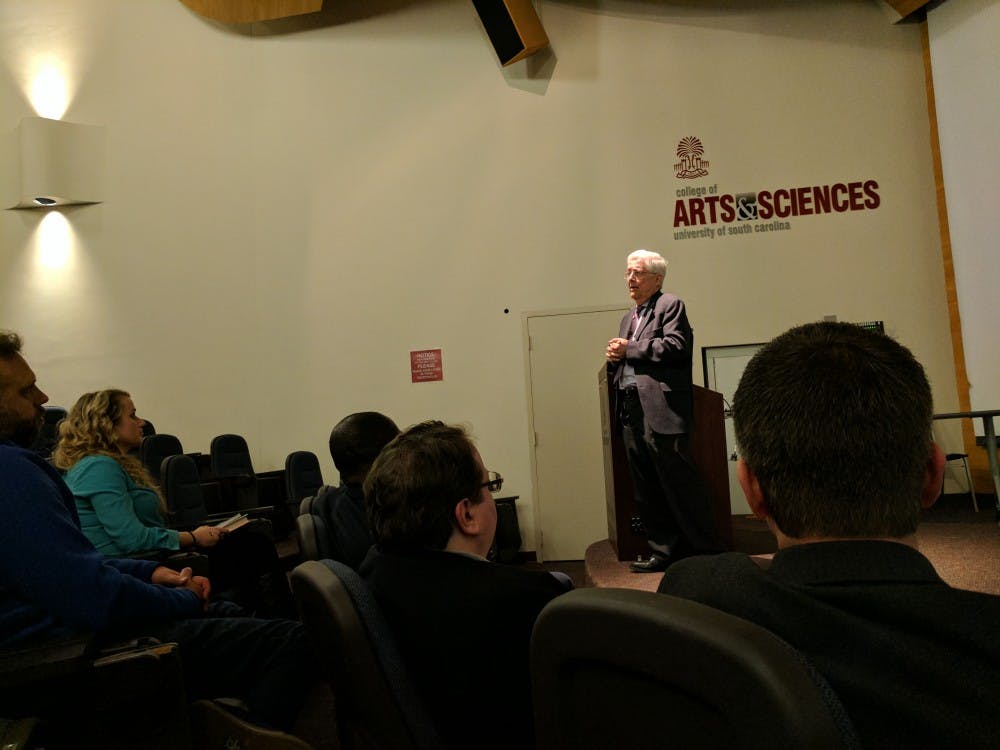Is more democracy always better? In the annual Pi Sigma Alpha Honor Society lecture Thursday night, Princeton political scientist Christopher Achen challenged the view that democracies are an inherently successful system.
“How can we get a good government when we don’t know what we’re doing?” Achen asked. His answer: We can’t.
In what’s been called “[t]he best book to understand the 2016 campaign,” Achen and his co-author Larry Bartels argue that partisan identities determine what people see as true. If correct, their theory has radical implications for elections in America — that actual policies and opinions matter much less than party affiliation. The result is that democracies often fail to do what is best for their constituents.
While intended for an academic audience, “Democracy for Realists: Why Elections Do Not Produce Responsive Government” gained attention and has been widely cited because of its relatability to political climates around the world. Achen jokingly suggested that President Donald Trump and former Prime Minister David Cameron had offered themselves up as a free advertisement.
The lively talk, while focusing on theory, was peppered with examples and anecdotes. Achen opened by saying that he likes coming to South Carolina because Princeton is a “culturally deprived area in many ways — it has no barbecue.”
“His work raises big questions about democracy that are of interest to political scientists, but it’s something most people can engage,” said associate professor Chuck Finocchiaro, Pi Sigma Alpha’s faculty advisor. This engagement was clear in the attendance of the lecture – turnout was high compared to many other lectures offered on campus. Students studying subjects from political science to engineering stayed after to ask Achen questions, mainly on the recent presidential election.
“I think this election was, in various ways, more engaging for people than some other elections have been,” Achen said.
Answering a question from third-year international studies student Addison Klepper, Achen said that, although media played a large part in partisanship, family upbringing is still the largest factor in determining policy perceptions, although religion, marriage and socioeconomic movement can cause a shift.
“We’re all creatures of our history and creatures of our identity,” Achen said. “You can’t get away from those things and you shouldn’t try. The challenge is to see that other people have identities that are just as important to them.”
Our political system has become “too French” and focused on emotions, according to Achen.
“We just need to become less sappy,” he said. He said society should value leadership and rely more on experts and insiders because they actually often do know what's best — an unpopular opinion in the most recent election cycle.
And for students, he said just “getting started is the important thing.” He encouraged them to look further into correlations between identity and voting behavior, continuing the legacy of political science on USC's campus. Francis Lieber, the namesake of Lieber College on the Horseshoe, was the founder of American political science.
“We’re all in his debt,” Achen said. “I’m always honored to be here because of his leadership.”

